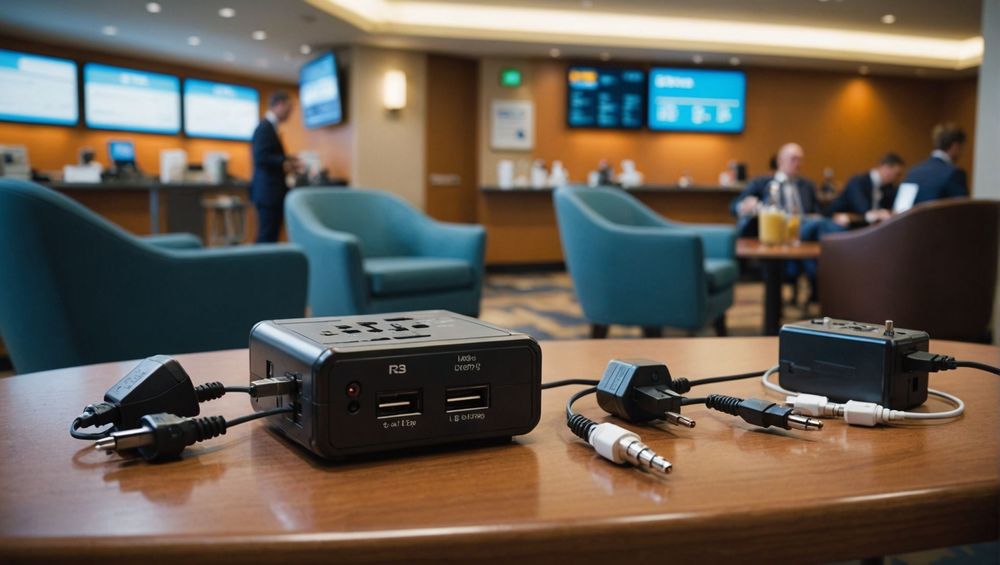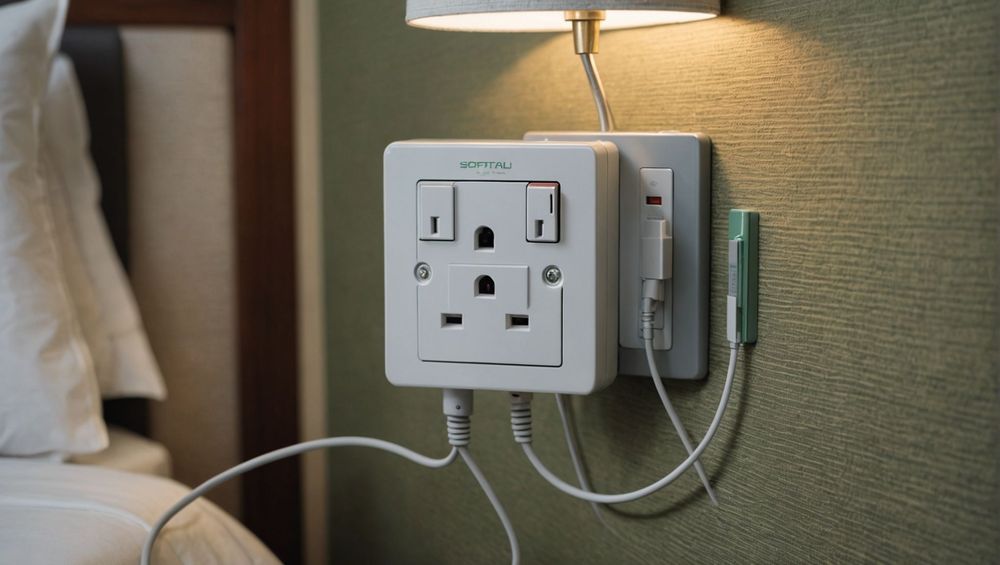When purchasing a universal adapter, it’s essential to consider various factors to ensure compatibility, safety, and functionality. A universal adapter is designed to work with multiple types of plugs and voltages across different countries, making it a convenient travel accessory. However, not all adapters are created equal. In this article, we’ll delve into key features to look for that will help you make an informed decision when buying a universal adapter.
Compatibility with Various Plug Types

The primary function of a universal adapter is its ability to accommodate different plug types. When shopping for one, you should ensure that it supports the most common plug configurations found in the countries you plan to visit. Many adapters come with several interchangeable plug types, which can make it easier to adapt to various sockets. Here are some considerations:
- Check for compatibility with major plug types such as Type A, B, C, D, E, F, G, H, I, J, K, L, M, and N.
- Look for adapters that include built-in adapters or a physical configuration that allows for easy switching between plug types.
- Read reviews or specifications that detail its compatibility with less common plugs.
Having a universal adapter that meets your needs in terms of compatibility is crucial to ensuring that your devices can be charged without issues while traveling.
Voltage and Wattage Requirements

Another critical factor to consider is the voltage and wattage capacity of the universal adapter. Different countries operate on different voltage systems, typically ranging from 100V to 240V. Here’s what you should look for:
- Find adapters that can handle both 110V and 220V, enabling use in a wider range of countries.
- Make sure the adapter includes a built-in voltage converter, particularly if you’re using high-wattage appliances like hair dryers or straighteners.
- Check the wattage limit of the adapter to ensure that it suits your needs; high-wattage devices may require specific adapters.
Voltage compatibility is vital for avoiding damage to your devices, so always double-check your requirements before making a purchase.
Safety Features
Your safety while using electrical appliances abroad should be a priority when choosing a universal adapter. Look for these essential safety features:
- Overload protection: This feature helps prevent damage to both the adapter and your devices in case of excessive current.
- Short circuit protection: It automatically turns off the power flow if there’s an electrical fault, ensuring safety.
- Certification marks: Ensure the adaptor has safety certifications such as CE, UL, or FCC, which indicate the product meets international safety standards.
Investing in an adapter with robust safety features keeps your devices and yourself safe from electrical hazards.
Size and Portability
Portability is another crucial aspect to consider when purchasing a universal adapter, especially for travelers who are often on the go. Smaller, lightweight adapters are generally more convenient and easier to carry. Here are some tips:
- Opt for compact designs that easily fit into your luggage or carry-on.
- Look for adapters that come with a travel pouch for organization and protection.
- Consider the weight of the adapter; heavier models might be cumbersome during travels.
Choosing a travel-friendly adapter can significantly enhance your travel experience by saving space and reducing hassle.
Price and Warranty
Lastly, assess the price and warranty options for the universal adapter. While it can be tempting to opt for the cheapest option, consider the balance between cost and quality. Look for:
- Adapters that offer a good warranty, indicating the manufacturer’s confidence in the product’s durability.
- Reviews comparing value for money, particularly focusing on long-term user satisfaction.
- Consider investing slightly more in high-quality options that include additional features or better safety ratings.
By carefully considering the price and warranty, you can make a wise purchase that not only meets your immediate needs but also provides long-term reliability and support.
Conclusion
Choosing the right universal adapter is essential for a hassle-free travel experience. Ensuring compatibility with various plug types, checking voltage requirements, and assessing safety features all play critical roles in making the right purchase. Additionally, considering size, portability, price, and warranty can lead to better overall satisfaction. By following the guidelines presented in this article, you’ll be well-equipped to select a universal adapter that caters efficiently to your travel and charging needs.
FAQs
1. What is a universal adapter?
A universal adapter is a device that allows you to plug electronic devices into different types of electrical outlets around the world.
2. Do I need a voltage converter if my device is dual voltage?
If your device is dual voltage, you typically do not need a voltage converter, but you will still need a universal adapter to fit the plug into the outlet.
3. Can I use a universal adapter for high-wattage appliances?
It depends on the specific universal adapter. Ensure it has the capacity and features to handle high wattage before using it for such appliances.
4. Are all universal adapters safe?
No, not all universal adapters are created equal. Look for those with safety certifications and built-in safety features to protect against electrical hazards.
5. How do I know which plug type I need for my travels?
Research the plug types used in the country you are visiting. Many travel websites and guides provide detailed information about plug types and voltage used around the world.



